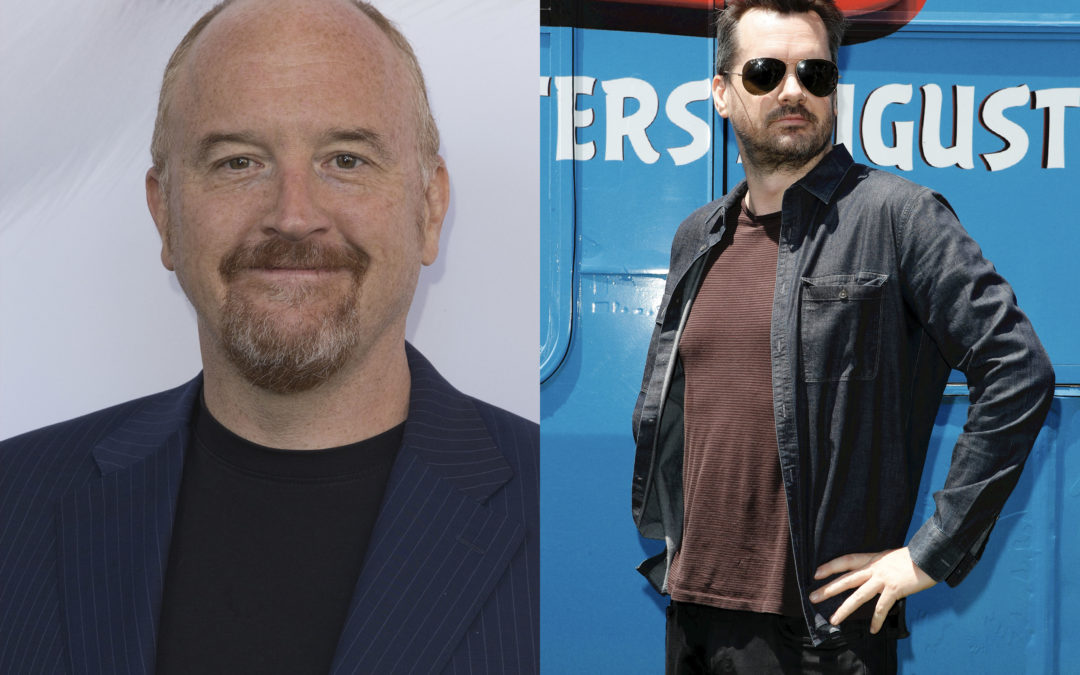0050 | December 17, 2018
You’re Being Watched: Surveillance Now and Then
C. Travis Webb, Seph Rodney, and Steven Fullwood discuss surveillance. Apps that track their users and government access to their data is much discussed, but surveillance isn’t new. Marginalized communities have been tracked for centuries, and powerful individuals have always had access to privacy, so what does privacy mean in the twenty-first century?

| C.T. WEBB 00:19 | [music] Good afternoon, good morning, or good evening, and welcome to The American Age Podcast. This is C. Travis Webb, editor of The American Age, and I’m speaking to you from Orange, California. And I’m talking to Seph Rodney and Steven Fullwood. Gentlemen. |
| S. RODNEY 00:33 | Yes. Hello. My name is Seph Rodney. I am an editor at Hyperallergic and an adjunct faculty member at Parsons, the School of Design. And I’m speaking to you from South Bronx, where it’s kind of hazy and blech-looking today. |
| S. FULLWOOD 00:55 | Ah, yes. And I am Steven G. Fullwood. And I am a freelance editor, thinker, hippie, and I’m the co-founder of The Nomadic Archivists Project [laughter], which is a project assisting people of African descent in their quest to develop their archival histories. And I’m coming to you from Harlem, and I am in a great mood. Yeah. |
| C.T. WEBB 01:20 | Oh, all right. |
| S. RODNEY 01:21 | Can I just say my intro gets increasingly attenuated and regimented [laughter], and Steven’s always has a new element, which I appreciate, so. |
| C.T. WEBB 01:32 | Yeah. Steven brings the boogie-woogie. He does. |
| S. RODNEY 01:35 | That’s right. That’s right [laughter]. |
| S. FULLWOOD 01:37 | It’s all the ayahuasca that I can take [laughter]. All the ayahuasca I can experience [laughter]. |
| C.T. WEBB 01:45 | And this is to remind our listeners that we practice a form of what we like to call intellectual intimacy, which is that we try and give ourselves the space to be understood and to speak our minds. So today’s topic was inspired by, I believe, a New York Times Magazine article, maybe New York Times article on the way that apps track us constantly. And it was actu0ally Steven’s idea for a podcast. I thought it was a great one. So Steven, you want to take us into sort of what your thoughts were on the article and what it called to mind? |
| S. FULLWOOD 02:22 | Oh, absolutely. So the app came across my Facebook feed, and I opened it up. And I love several things about the article. One, I rarely ever think about surveillance outside of I don’t want to be surveilled. It was an opportunity to sort of think about it, and to think about it in the broadest sense, and then sort of however much time I had, to do some kinds of research. So what I think is interesting is the ways in which we’re surveilled. And we’ve been surveilled for years before the technology, and I’m going to get into that a little bit later on. The New York Times piece tells us that apps are telling us our business in that the data mining companies are buying this information and using it for advertising, but they could also be used for nefarious purposes. And the interactive part of it I love is that you become a dot, essentially, in the infographic that they provide, a couple infographics. And so I think that it’s one of those things where the user terms or the – what do they call it? – the privacy notice that you get that you sign off on is so dense, and so, you don’t want to read 1,000 pages on your phone, so you just go check, I definitely want this app. You’re not really clear. I think most of us aren’t really clear on what that really means in terms of where our data’s going, our personal data. And so I was curious about what you guys thought about it when you read it. What did it register for you? For me, essentially register, I need to think a lot more in-depth about the surveillance because I think I’ve become numb, and I don’t like that feeling. |
| C.T. WEBB 04:01 | Yeah. There’s a kind of poster-blindness to it, right? I mean, that’s what they used to call it on college campuses when club week would come around, just posters were everywhere. And so you just get kind of– you just don’t see them anymore. Seph, do you have anything you want to say about this [area?]? |
| S. RODNEY 04:20 | I do. I do. I think when I read the piece earlier today, one of the things that first occurred to me was, essentially, we are living in a Black Mirror episode. And for those people who don’t know, Black Mirror is a television series that was written by Charlie Brooker who’s, I think, an ex-journalist, used to work for The Guardian, has been producing TV shows for, I think, a while now or writing them. I think he’s written and produced Black Mirror. And Black Mirror’s just sort of edge of tomorrow, sort of Twilight Zone, kind of half-hour, hour scenarios, which tell us something essentially profound about how we are living now, right now. And I think the kinds of ways that we can be tracked, according to the Times piece, indicate that we really have a lot less agency than we think we do. Or rather, we have less sort of anonymity, yeah, maybe it’s not agency, it’s anonymity than we think we do. One of the scarier things that I read in that piece was that there were two apps that had mapped people attending Trump’s inauguration. I’m like, “Why are you doing that?” That’s freaky and weird and telling, I suppose. I’m not one who pretends to be technophobic, and I’m not one who tends to be paranoid about these kinds of things, but I do find it– there’s a certain kind of awareness that is starting to creep in. People in my life like Steven, and frankly, my students at Parsons, a couple of whom have undertaken research into this general area in data mining, basically having their data being used by people they don’t know for purposes that they don’t necessarily– |
| C.T. WEBB 06:39 | Sanction. |
| S. FULLWOOD 06:40 | Agree with. |
| S. RODNEY 06:40 | Yes. Thank you. Sanction’s a perfect word. But I am taken aback by how much I am sort of made into a thing for somebody else, right? That bothers me. I think that’s maybe why I used the word agency. I become like this set of variables for some company out there to, essentially, manipulate. And I mean, I notice this, and there are ways in which I am very complicit because I’m happy to turn on location services, so I can find out where the hell I’m going because I have a horrible sense of direction. So once I get out of the subway– and I’ve lived in New York for, I don’t know, 20-something years. And then I still get out of the subway, and I’m like, it literally takes me minutes to orient myself. So being able to look at my phone at Google Maps and sort of point myself towards West 13th Street is great. I guess I’m saying all of this, and it feels like I’m a bit in my own sort of verbal maze now [laughter]. |
| C.T. WEBB 07:47 | Well, let me toss you a line to humanize the lost moment [laughter]. |
| S. RODNEY 07:52 | Please. |
| C.T. WEBB 07:52 | It reminds me when we were, and Seph and I were in– I was visiting Seph in London several years ago, and we were supposed to go to Ye Olde Cheshire Cheese, which is one of the oldest pubs in the city of London. |
| S. FULLWOOD 08:05 | Isn’t that the one with the tree growing in the middle of it? |
| C.T. WEBB 08:08 | No. It’s the one that Samuel Johnson supposedly frequented, where the [inaudible] is. And you and I walked around it for an hour before we actually found where we were supposed to go [laughter]. We were very late. Anyway, so it was a way to lighten– I bring that up because there are some real benefits to these things, right? I mean, things like being able to orient yourself in space is nice. This conversation, actually, and something Steven had said, I don’t actually remember now, helped me reconcile two things that I have often felt about the issue of privacy and where information about ourselves is being kept and what it’s being used for. The line that I would often return to, but I would never argue very strongly because it didn’t settle very well with me, and I know why now, which is a long preface to say, for most of human history, we’ve always known where each other were, right? When you lived in a village, you knew where all the other people in the village were. You knew when people went over behind the banyan tree, or where people– privacy was just not a thing, right? Except, and this is something that Steven said – I don’t know if it was intentional, probably was knowing Steven – the surveilled part of– the way he said about being surveilled, it recalled to me the history of race in the United States. So black bodies, non-white bodies, have always been surveilled. They’ve always been surveilled. They’ve always been watched whether even if it’s just out of the corner of the eye or something like that. So that feeling of being– |
| S. RODNEY 10:05 | Policed. |
| C.T. WEBB 10:06 | Yeah. Policed. |
| S. RODNEY 10:07 | But see, here– |
| C.T. WEBB 10:08 | Let me finish my quote, and then you can jump in, is that what it really brings into focus is sovereignty and power, right? So even in ancient human history, there was always the shaman or the king or whomever that got to go somewhere where other eyes couldn’t see. So privacy was a part of status. |
| S. FULLWOOD 10:40 | Premium. Absolutely. |
| C.T. WEBB 10:42 | That’s right. |
| S. RODNEY 10:44 | Exactly. |
| C.T. WEBB 10:43 | And so, and that is why privacy is, I would almost want to argue, a kind of sacred responsibility to maintain it and protect it because it’s what ensures a sovereign citizen. And without that, that sovereignty, I think, comes under threat. So anyway, I’m sorry. Steven, you were [inaudible]. |
| S. FULLWOOD 11:06 | Well, what’s interesting, I love that you lead into race because I was thinking about this idea. So there’s a woman by the name of Simone Browne who wrote a book called Dark Matters on the surveillance of blackness, and one of the more potent quotes I pulled from the book, I thought was really amazing, was that rather than seeing surveillance as something inaugurated by new technologies – such as automated facial recognition, unmanned autonomous vehicles or drones – to see it as an ongoing– to insist that we factor in how racism, anti-blackness, undergird and sustain the intersection of surveillances of our present order. I like that more and think it serves as a way to kind of think about the criminalization of everybody in the US through collecting– there’s so much collecting of data through your– what is it? When you drive you have a–? |
| S. RODNEY 12:01 | GPS? |
| S. FULLWOOD 12:01 | –license plate. License plate that’s being checked all the time when you go in and out of different places for tickets or whatever. Then you have this specialty center downtown, lower Manhattan, where you have all these cameras. Over 6,000 cameras is connected to around the city where we’re constantly zooming in on people, and do you see, what is it, the– there are a few things I think are important. One, briefly, is the ACLU wrote a piece called What’s Wrong With Public Video Surveillance, is that it really doesn’t keep us safe. That we’re just getting data, and we’re just getting data, and we’re warehousing data, and that it’s subject to human error and subject to human, what do you call it, creep factor, where you’re just looking at people. And you’re not really using it for the thing that you’re supposed to be using it for. |
| S. RODNEY 12:53 | Or you end up following an ex-boyfriend or ex-girlfriend or ex-whatever [laughter], right? |
| S. FULLWOOD 12:58 | Exactly. |
| C.T. WEBB 13:00 | Seph, I think I probably wouldn’t go all the way with you to criminalization, and I would say more like infantilization. So I think it’s a way to basically turn us into helicoptered children, right? So you have the sort of helicopter parenting, which is there’s always this sort of hovering around. You need to provide to their needs. You need to slide their needs in front of them because they aren’t going to take care of themselves. They’re not going to put a jacket on when it’s cold. They’re not going to feed themselves when they’re hungry. And so I see the heavily commercial aspect of it as more of an infantilization as opposed to a criminalization because I don’t think these people want to put you in jail. I think they just want to sell you a bunch of shit. |
| S. FULLWOOD 13:43 | I think that you’re being very generous. You’re being very generous [laughter]. |
| S. RODNEY 13:49 | All right. I would tend to agree with Steven on this point, but I also think that there’s a way in which, depending on what we’re talking about, we are really data points for certain business concerns, and I don’t think that some of those business concerns– I don’t know, sort of sussing out where business stops, and the police state begins is sometimes difficult. But I think for some businesses, they really don’t give a shit what race we are as long as we buy shit. But I do think that there is a kind of mythos whipped up around public CCTV cameras that has to do with the notion that they make us sick or that having people watch us– and here’s the thing. Here’s the thing. This is where I think I’m a slight bit of a monkey wrench in this argument because there’s part of me, the conservative part I will admit, that doesn’t mind the State watching people. And here’s my rationale, and I know that this is an argument that’s chock-full of holes, and I’m sure both of you are going to blow more holes through it [laughter]. |
| S. FULLWOOD 15:04 | As we should. |
| S. RODNEY 15:05 | As we should. But part of me, part of me, wants to say, “Well, if you’re doing nothing wrong, so what’s the problem?” Lawrence Harding, who’s a friend you both know, has this thing, he says, “No. I don’t want anybody to know where I am. Just leave me alone.” And my thing is I don’t mind you knowing where I am because I’m good. I’m not going anyplace, and I worry about the guys, I worry about the men, and men in particular, because women do this less, but the men who hop on a plane to go to Malaysia to pick themselves up a small Malaysian boy and do whatever, and then hop a flight back. |
| C.T. WEBB 15:58 | Malaysian ice cream. |
| S. RODNEY 15:59 | Right. There you go. Right [laughter]. |
| S. FULLWOOD 16:00 | Oh, wow. These are terrible things to say [laughter]. Crazy. |
| S. RODNEY 16:05 | But my thing is– |
| S. FULLWOOD 16:07 | Data point. |
| S. RODNEY 16:08 | –why shouldn’t we know where that person is? Why shouldn’t we know where the child molesters are, the rapists, the drug runners? I mean, why shouldn’t we? |
| C.T. WEBB 16:22 | Well, I think, so on one hand I think I’m fine with people who have a clear criminal history being more closely monitored and watched. I think the thing that makes people nervous about a heavily-surveilled population and a State apparatus that maintains that surveillance is that what is acceptable behavior could shift dramatically if certain interests came to power, right? |
| S. RODNEY 16:56 | Which is the Black Mirror episode, right? |
| C.T. WEBB 16:58 | Yes, it is. |
| S. RODNEY 16:59 | We’re all monetized. Right. |
| C.T. WEBB 17:00 | We all feel fine with the police state when Obama is president, but all of a sudden, we really don’t like the idea when Trump is president [laughter]. I’m not saying that’s– I’m not saying that’s true of you, Steven. I know you don’t like it across the board, but I’m saying, it’s– |
| S. FULLWOOD 17:12 | Yeah. That’s a good point though. That’s a very good point. |
| C.T. WEBB 17:12 | I mean, it’s clearly like I just– one, it makes me way less comfortable, you know [laughter]? |
| S. FULLWOOD 17:20 | Right. Yeah. |
| C.T. WEBB 17:21 | And so, as a rule, given the inherent flaws in our species, I think it’s not a bad thing to protect– I mean, now we’re getting to sort of foundational, what I would call, American principles of limiting centralized power because it can be so easily abused. |
| S. FULLWOOD 17:41 | Absolutely. And you actually mentioned something that I think is really important. It’s the idea of always knowing that you’re being watched. So it’s a behavior modification, directly and indirectly, about how you present yourself because if you– what if you think a criminal looks like this? It changes the way you might dress. What if a criminal talks loudly? You speak slower or more softly, those kinds of things. And so I think– |
| C.T. WEBB 18:08 | Yeah. Or what if a criminal is a wegar, or a criminal is a Muslim, or a criminal is a– I mean, this is the problem. I mean, what you just said, Steven, it exactly encapsulates the issue, right? |
| S. FULLWOOD 18:21 | And it’s a powerful thing because one of the pieces that I was reading, I think it was there was a piece from the Washington Post where there were– yeah. It was the terrorist attacks in Boston and Orlando and other places where they had certain people on this list that people were calling– there were people who were saying, “You should watch this person.” There were preachers, friends, and what have you. But these people got caught up in the so-much-information lists that they weren’t able to prevent these things from happening. So there’s just so much information being– |
| S. RODNEY 18:52 | Generated. |
| S. FULLWOOD 18:52 | –collected, that we’re not– how do you regulate it? How are these, with new technologies where you can enhance– I don’t know if you guys watch the– it’s a Adult Swim show, and it’s a spoof on police procedurals, and it’s called NF– there it is. It’s NTSF:SD:SUV [laughter], and it’s hilarious [laughter]. So this is covering everything [laughter]. |
| C.T. WEBB 19:20 | That’s hilarious. |
| S. FULLWOOD 19:22 | There’s a point in it where two of the characters are talking, and they’re looking at a screen. They’re looking at some video footage, and she goes, “Enhance, enhance, enhance, enhance, enhance, enhance,” and it’s so good. You’re like, “Good gravy,” but we’re moving towards that. We’re moving towards better and better technology. |
| C.T. WEBB 19:37 | Seph, can I– |
| S. FULLWOOD 19:38 | Yeah, go ahead. |
| C.T. WEBB 19:37 | Can I respond to something really quickly before– I know, we haven’t given Seph a chance to say much, but I worry about that argument. Not because I disagree with it, but because I feel like it’s a no-win argument because if you’re opening the floor to the innovation on the use of that data collection and information, someone will figure that out and/or someone will structure a study in a way that shows that that level of surveillance actually increases safety. I think you have to go with the argument from a baseline of principle, which is that the sovereignty of the individual has to be a baseline good, full stop. And everything has to be measured against that baseline good, which is the sovereignty of the individual to decide how knowledge about their person can be used and distributed. |
| S. RODNEY 20:42 | I fully agree with that. |
| S. FULLWOOD 20:44 | I’ll definitely agree with that. And it goes back to my idea of regulation. How are these places being regulated? So there’s one, I think in New York City, you’re allowed to keep video footage for 30 days before you have to erase it. And I think it’s the audio you can keep a little bit– no, the data points, right, the metadata. |
| C.T. WEBB 21:05 | So this is the police department can keep this? The police department can keep it for 30 days? |
| S. FULLWOOD 21:08 | Yes. And so, but I think– you knew about the Hays Codes. This is the Hollywood codes that were developed in 1930 but actually enforced in 1934 where it was the first sort of film censorship guidelines, so to speak. And so, what they were trying to do, the film producers and studio heads got together and decided that they wanted to regulate themselves because they saw that the government was coming to do that. And so they wanted to get ahead of that. I was wondering if a similar thing is happening right now with data companies and surveillance companies because it’s their bread and butter. If you guys don’t regulate yourself– right now there don’t seem to be any regulations. You just have the cameras, and you can basically do what you want, given your station, given if you’re the police or some other body. So I want us to be more aware of not just what they do with our information, but that there are things in place that protect us with that baseline. And that baseline doesn’t appear to be anywhere in anything that I’ve read so far. So that’s it. |
| S. RODNEY 22:11 | Well, the Times article indicated that– I mean, in this kind of– |
| S. FULLWOOD 22:15 | The Google. |
| S. RODNEY 22:17 | Well, no, no, no. The pending legislation from the Democrat, I think, in California or was it Utah? There’s a particular congressperson who wanted to introduce legislation to begin to, basically, protect an individual’s sovereignty by saying that they would have to– an individual would have to expressly endorse the use of a business concern to have his or her data manipulated, used in the ways we’ve been talking about. I think that that’s a point of clarity I’m glad we got to today. I think that helps me think through some of the sort of vague misgivings and fears I had around this. I think that makes perfect sense to me to protect our individual, I mean, sovereignty’s a better word than agency or autonomy or even anonymity, I think, because I think it encompasses all of those things. I think we are always sort of– ever since the invention of– invention. The onset of modernity, where you have a nation state, an apparatus that takes responsibility for the social order, I think that we have had since that point– and that’s, for European nations, that’s around, I guess, the 17th century. Ever since that point, we have had a kind of struggle between the individual and the State. A kind of sussing out where one’s agency or sovereignty stops and the State’s begins. And I think technology isn’t sort of making that new. It’s just changing the terms of that struggle, that engagement, in particular ways. |
| S. FULLWOOD 24:22 | And it’s illuminating it. It’s actually that tension. That tension that Toni Morrison wrote about it in her Nobel lecture. And what she said was that a president, at one point, could be inaugurated 1:00 that afternoon, and then walk home that night by himself. And there’s a tension between that social and that big thing and then also this individual, and that she thinks that tension should ought to remain there of that individual and the society. |
| S. RODNEY 24:50 | Yes, yes. Agreed. |
| C.T. WEBB 24:52 | And one of the– and one quick note before we wrap up is one of the distinctions that we really didn’t make, we didn’t really have time to make, is between the type of surveillance apparatus that is being built by private companies and those that are being built by the United States and other countries. And say what you will of the power of the individual voter and whether voting matters. I mean, there are people that study things like this, but you have a hell of a lot more proportional power as a single voter than you do as a 20- or 30,000-dollar-a-year wage worker in the maintenance of those two apparati. I mean, you really, you absolutely are well-nigh powerless in the face of what Facebook is going to do or Google is going to do in a way that in spite of our smallness in the face of something like the US government, we have more impact in that arena, I would argue. |
| S. RODNEY 26:00 | I agree with that. Yeah. |
| S. FULLWOOD 26:01 | Me too. Me too. Same page. |
| C.T. WEBB 26:03 | So we’ll try and get back to our habit of saying what we’re going to talk about next week. Next week we’ll be talking about role models, I think, is what we decided on [laughter]. |
| S. RODNEY 26:11 | Yes [laughter]. Yes. I want to bring in Charles Barkley into that conversation, give him a good kicking around the ring [laughter]. |
| S. FULLWOOD 26:21 | Wow. Wow. |
| C.T. WEBB 26:23 | All right. Okay. So next week, role models. Seph, Steven, thanks very much for the conversation. |
| S. RODNEY 26:28 | And gee, thank you. |
| S. FULLWOOD 26:28 | And just remember, Big Brother’s watching you [laughter]. [music] Good day. [music] |
References
First referenced at 04:20
“An anthology series exploring a twisted, high-tech world where humanity’s greatest innovations and darkest instincts collide.” Netflix.

Episode 0101 – Comedy: Patrice O’Neal, Laughing Because It Hurts
Patrice O’Neal died in 2011, but his comedy is still hot. Stories that turn a bitter reality into laughter is this week’s subject. Should there be a limit on what comedians can say for a joke?

Comedy: Maria Bamford, How to Maintain Mental Health
The cliché goes that “laughter is the best medicine,” but the idea’s been around for thousands of years, so it’s probably best to call it “wisdom.” How can comedy help us cope with trauma?

Episode 0098 – Comedy: Offensive Comedy and Its Virtues
There’s laughing at yourself, and then there’s laughing at others. While the former is virtuous the latter is indispensable to group cohesion. In this episode the hosts talk about Jim Jefferies and Louis C.K. What are the limits of comedy?

Humor: What’s so funny?
The hosts take a personal look at what they find funny and why. Fair warning, political sensitivities aren’t off-limits.
